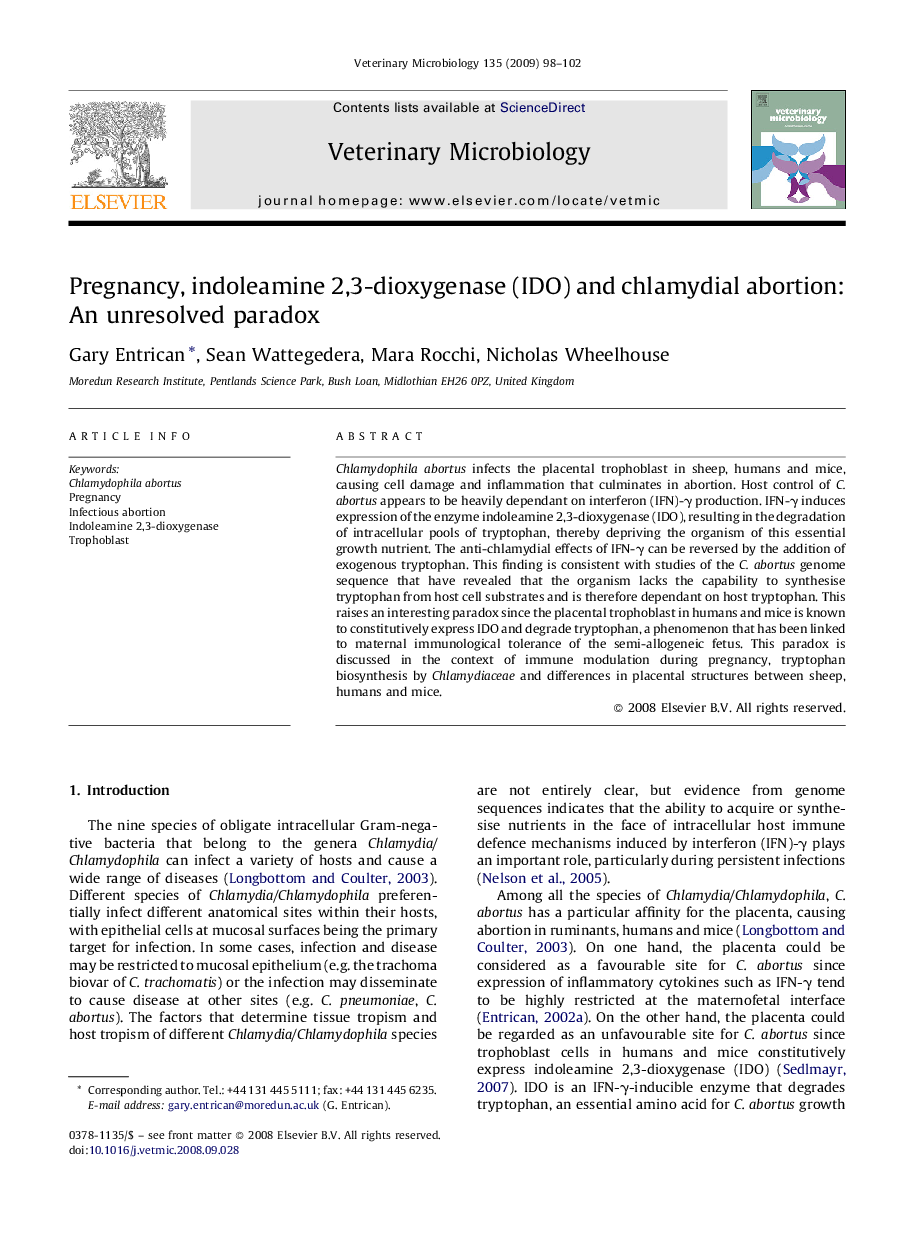| Article ID | Journal | Published Year | Pages | File Type |
|---|---|---|---|---|
| 2468330 | Veterinary Microbiology | 2009 | 5 Pages |
Chlamydophila abortus infects the placental trophoblast in sheep, humans and mice, causing cell damage and inflammation that culminates in abortion. Host control of C. abortus appears to be heavily dependant on interferon (IFN)-γ production. IFN-γ induces expression of the enzyme indoleamine 2,3-dioxygenase (IDO), resulting in the degradation of intracellular pools of tryptophan, thereby depriving the organism of this essential growth nutrient. The anti-chlamydial effects of IFN-γ can be reversed by the addition of exogenous tryptophan. This finding is consistent with studies of the C. abortus genome sequence that have revealed that the organism lacks the capability to synthesise tryptophan from host cell substrates and is therefore dependant on host tryptophan. This raises an interesting paradox since the placental trophoblast in humans and mice is known to constitutively express IDO and degrade tryptophan, a phenomenon that has been linked to maternal immunological tolerance of the semi-allogeneic fetus. This paradox is discussed in the context of immune modulation during pregnancy, tryptophan biosynthesis by Chlamydiaceae and differences in placental structures between sheep, humans and mice.
